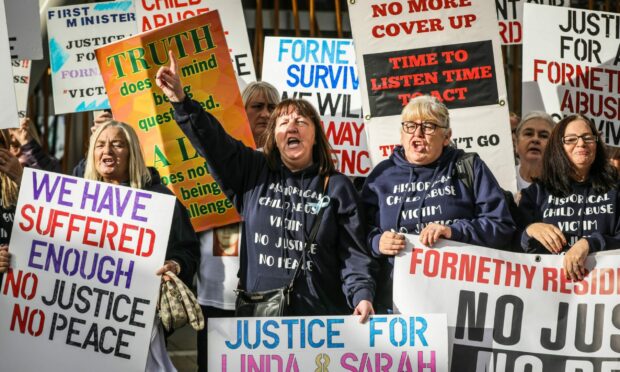Deputy First Minister Kate Forbes has rejected a call from MSPs to allow Fornethy House abuse survivors access to compensation from a Scottish Government scheme.
She refused to amend the eligibility criteria to include the survivors in the Redress Scotland scheme.
More than 200 women have come forward with abuse allegations relating to the residential school in Kilry, Angus, dating back to the 1960s and 70s.
The former residents say they were beaten, humiliated, force-fed and sexually assaulted during their short-term stays at the school, which was then run by Glasgow’s local authority.
The Courier published an in-depth investigation into the abuse claims in 2022.
The compensation scheme offers up to £100,000 in compensation for those abused in residential care before 2004.
But it comes with requirements for the residents to stay in long-term care and to meet strict evidence requirements.
MSPs said survivors should be included
Updated regulations in December 2021 states abuse survivors who were placed in short-term respite or holiday care under arrangements with a parent or guardian were excluded from the compensation scheme.
Last month, Holyrood’s Citizen Participation and Public Petitions Committee said its unanimous view was that the Fornethy survivors should be included in the scheme.
In a letter to Ms Forbes, committee convener Jackson Carlaw said the exemption regulations were an “unjustified barrier preventing those who experienced abuse in settings such as Fornethy House”.
He said many of the children at the residential home had “limited or no contact” with their parents and relied on the institution for daily care.
The letter also recommended ministers include residential institutions that were owned and operated by the state, regardless of length of stay.
Ms Forbes said the length of the stay is “not a relevant consideration” but rather the “intended purpose of the stay”, and also said consent was not relevant.
Kate Forbes rejects call
She added: “Without more definitive evidence we cannot say with certainty that parents or guardians gave full and informed consent to the placement of every survivor.
“However, we can say that such evidence as exists indicates that the placements were made under arrangements involving their parent or guardian, and as such fall within the circumstances set out in the (exception regulation).”
Ms Forbes concluded: “After careful consideration of these issues, I have decided not to amend the eligibility criteria for Scotland’s Redress Scheme.”
She thanked the survivors for the bravery in sharing their experiences with the committee and said they had suffered “horrendous abuse”.


Conversation